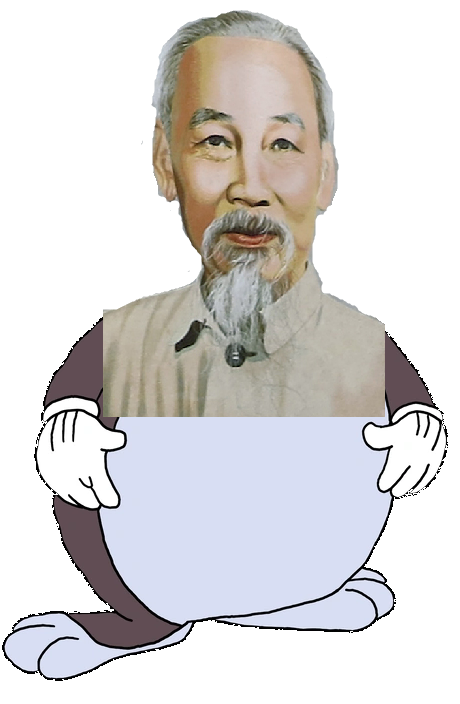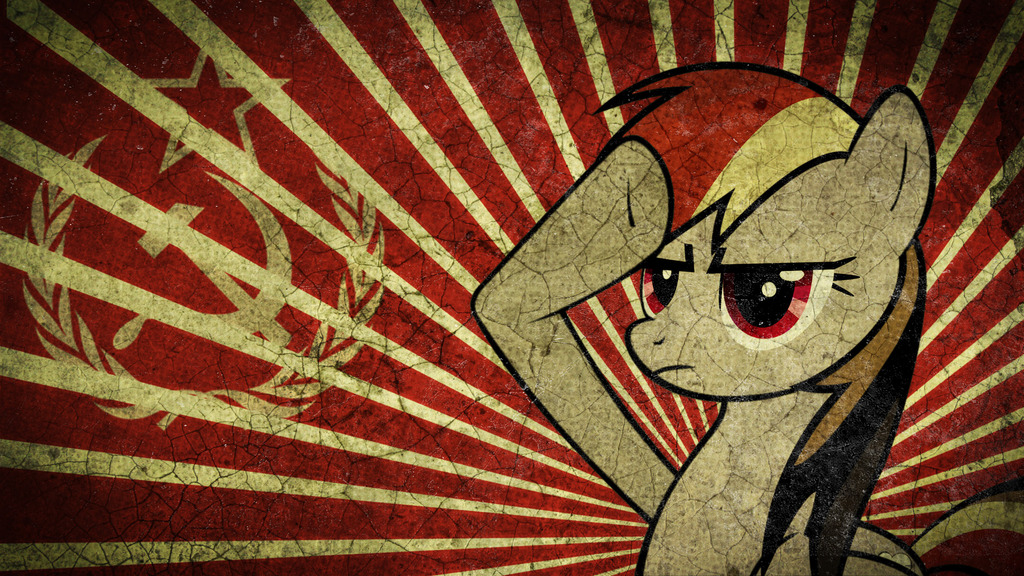Currently the CPC is anticipating to move into a higher stage of socialism, or becoming a fully socialist country, by 2050. This will obviously change much of China, but how will it effect their foreign policy? China has famously had many bad takes in terms of foreign policy, but their post-Mao non-interventionism is important practically in retaining peaceful and favorable relations with global capital. They know that, even now, funding revolutionaries will only isolate them internationally.
But once China’s productive forces are high enough to allow the socialist transition then they no longer have to remain non-interventionalist for practical reasons. They could still try and justify it, but at that stage it would be hard for China to reject the internationalist principles of Marxism. The USSR could afford, to an extent, to wield hard power in support of revolutions and their governments, and of course without the USSR it could be argued that most socialist states would have collapsed soon after gaining state power. The soviets could do this due to their high level of industrialization, military, and global economic power.
When China is able to realize the same stage of socialism as the USSR they will undoubtedly be the largest and strongest economy in the world. While the west will still have some influence and power with which to threaten and hurt China over supporting international socialism, they ultimately won’t be in the position of power to isolate China then as they did with the USSR. So there could be even less consequences for Chinese interventionism at this stage. Do you believe, then, that China would adopt foreign policy similar to the Soviet Union? And could even create an international version of the Warsaw Pact, that is an economic and military alliance between socialist states?
From my ignorant non-Chinese POV, there appear to be neither a practical or ideological reason for a fully socialist China not to be internationalist.
As much as I would like to think so, I don’t think they will. Their current model seems to be working well for them, so they probably won’t shift to a more “aggressive” foreign policy like that. It would be self-sacrifice for the rest of world’s benefit, but not to their own people’s. Though they may be forced into this due simply to the capitalist world not tolerating a powerful socialist presence. Right now they can make alliances and agreements with lesser capitalist powers, but once the west is no longer dominant, other capitalist powers will strive to take their place.
The big question will be “will China ever truly be fully socialist?” as I agree, a higher stage of socialism necessitates they help global socialism, but right now, almost 30 year away from that lofty 2050 goal, it is a bit too soon to say I think. Again, my answer is a “I sure hope so, but don’t know.” Which I guess isn’t too helpful.
I would say they have taken huge strides towards socialism in the Xi era alone. I do not find 2050 to be too outlandish, I mean I guess it depends how we qualify socialism.
Oh for sure, I didn’t mean it was an impossible goal, but it is still a difficult one.
The capitalist class in China will fight against wealth equality, even if they don’t have political power, they can use their wealth to influence people (and will receive support from outside of the country, from the west).
The last cold war, the US and the west were able to prevent revolution with concessions, as well as the idea that their people lived better lives than those in the USSR. But as China rises, and the rest of the world escapes from the grip of the west, the QOL of the people in the west will drop rapidly. It’s easy to talk about vague “freedoms” while comfortable. Much harder to do so when everyone is poor and struggling and the “authoritarian socialist state” of China’s people are living fantastic lives. I can’t imagine the western elite trying to backpedal on neo-liberalism, so they’re far more likely to just get aggressive and violent with China, which will probably delay China’s development.
China is exporting the most important kind of revolution, one welcomed by the vast majority of any society regardless of ideology- it’s exporting the revolution of human development, in infrastructure projects, in non-exploitative loans, in the industrial development of countries that have had the means of it withheld and suppressed by western capital, in education, in hospitals and healthcare and vaccines, in roads, ports, rail, telecom infrastructure, etc…
For revolutions which aim to change the socioeconomic structure of a society- it’s best left for the locals to figure out; IMO if China tried to export that sort of revolution, especially in the current circumstances, it would only lead to disaster- to a fragmenting of the global southern, non-western world. Foreign exploitation can be countered by providing a far superior, non-exploitative alternative; indigenous problems require indigenous solutions.
Quoting Stalin himself, from his interview with roy howard: “You see, we Marxists believe that a revolution will also take place in other countries. But it will take place only when the revolutionaries in those countries think it possible, or necessary. The export of revolution is nonsense. Every country will make its own revolution if it wants to, and if it does not want to, there will be no revolution. For example, our country wanted to make a revolution and made it, and now we are building a new, classless society.”
There would still be an USSR if trotskysts didn’t take over after Stalin and bite more than they could chew with their foreign policy, it is clear to me that the CPC has understood this so far. Providing support through trade relations is enough.
I’m not sure if I’d describe the Khrushchevites as “Trotskyists.”
Though this is an interesting perspective. I tend to find ultras where I am lambaste China for not spreading revolution, but will then in the next breath complain about the revisionist USSR *for * spreading revolution.
China has seemed to learn the lesson that exporting revolution in the way the USSR did doesn’t match their long term goals.
Do you believe, then, that China would adopt foreign policy similar to the Soviet Union? And could even create an international version of the Warsaw Pact, that is an economic and military alliance between socialist states?
No, that won’t happen. China has a strict policy of non-interventionism and non-alliance. China has consistently condemned the formation of small, exclusive blocs, like the G7, and the advent of a new Cold War. What you can expect is China strengthening relations with the Global Majority by providing assistance in the development of their own productive forces, rather than simply existing as raw material exporters; for example, China committed itself to enhancing long-term China-Africa relations at the recent BRICS summit meeting, and also pledged support to Cuba’s national sovereignty and for the embargo to end. That is internationalism of the 21st century.
Additional insight: https://www.reddit.com/r/TheDeprogram/comments/11b4qea/why_doesnt_china_fund_revolutions_in_the_global/
For this shift to happen and China not get weakened because of it, 2 conditions need to be met:
- the retraction of capitalist power projection around the world. Primarily, the ability of imperialist powers to impose their will around the globe through economic warfare, covert actions and military threats needs to be limited. Ideally the imperialist powers don’t need to only be weaker, but they also need to be pitted against each other, so their power structures (like NATO) are ineffective enough to not be a threat. The effects of the Ukraine war and the disastrous handling of COVID by the West might have seemingly already achieved this to an extend, but there’s a long way to go.
- strengthening the economies of any potential allies to the extend where they can create a front that is powerful enough to withstand or deter capitalist intervention, while not being dependant solely on Chinese economic, industrial and military power. Remember that one reason for the downfall of the USSR was that it diverted so much of its resources into developing its military capabilities, since nobody else in the Soviet bloc or its allies could contribute significantly against the Cold War. This is a pitfall that China is trying hard to avoid with its non-interventionism, as they have stated repeatedly.
Therefore, it very much depends on the state of the world by then. My personal opinion is that China are already laying the groundwork for these 2 conditions to be met with their initiative to economically boost the global south with their road-and-belt initiative and BRICS. Giving third-world nations an alternative to engaging with the US-led capitalist economy, and taking away raw resources from the imperialist machine is key to this.
Depends on what you mean by ‘after the Socialist Transition.’
I don’t think they will become actively interventionist, because history has shown external intervention rarely does more good than harm and never results in lasting change.
Regarding how much they support and encourage other countries to change, I think their decision-making there is based more on the dynamics between states than on China’s internal condition. We can already see nations moving left and opposing imperialism as US power declines and a multipolar world arises, and China is facilitating those conditions.
I think I might be wrong, but to disagree with others here I think we are already seeing that happening. They are already slowly pivoting towards more assertive behavior, sort of doing what they can get away with without incurring a full hot war from the Beast. Something like BRICS or the B&RI might be very different than sending weapons and tanks, but to me this is done knowing damn well that they are helping countries develop who will naturally turn towards socialism or, at the very least, anti imperialism, over time. I think they do a lot less than the Soviets and even capitalist Russia, but what they do do is very subtle and savvy and long-game focused.
Will they ever cross the line and ship weapons and tanks? Hard to say, but I could see both increasing Western hostilities forcing them to make that choice, or decreasing Western capabilities making that choice less risky.
Eventually, they will have to, it will be a necessity, socialism and capitalism are the anti-thesis of each other, there cannot be peaceful cooperation between opposites. Of course, there may be mutual agreements, but they’re usually short-term. History has shown time and time again that the capitalists will do everything, every time, everywhere to hurt socialists and socialist countries.
When the USSR was at civil war, what the biggest capitalist powers did? They tried to suppress it invading them. China is in the sweet spot where they can enjoy relative safety from western powers due to the economic dependence the west has on China, but that won’t remain forever.
You cannot trust the ruling classes of third world countries too, as they have shown to be extremely reactionary everywhere. In the case of my country, Brazil, the ruling class is mostly owners of farmland, one of the worst kind. They cannot be trusted. China will eventually have to gain trustful allies, in this case, socialist countries, they have to help the proletariat of the world eventually.
I don’t know but I will say: 习近平,我的人民渴望自由。请发送东风导弹
The West won’t weaken enough in the next hundred years for it to be beneficial to China to take an interventionist role in the world. The decline of the West is more the decline of western living standards rather than economic power. It’s more likely an organic revolution will occur in some western states between 2050-2100, the Chinese don’t need to risk damaging relations for this to happen.
But dedollarization is already happening! Countries preyed upon by the West are freeing themselves and choosing to have relations with non-Western powers instead! I think already there is a tangible decline of Western economic power.
Dedollarization is a very slow moving process so it doesn’t interrupt Chinese trade or investments. I agree there’s a tangible decline but it’s a very slow decline.
deleted by creator
The CCP is still in the dictatorship of the proletariat stage. They’re suppressing Marxist student groups and labor organization. How would they get to ‘higher state of socialism’ and what would that look like? I’m not talking international relations, I’m talking about domestically.
I’ve lived in China and I’m not used to people looking at the CCP whimsically and romantically.
They’re suppressing Marxist student groups and labor organization. How would they get to ‘higher state of socialism’ and what would that look like?
The simple explanation is that China after the Mao era decided to cede ground to bourgeoisie and liberalise the economy to attract foreign investment, integrate itself into world economically and diplomatically and in general just develop as a country. It did result in deviation towards the political right which is how the examples you gave came about to be. It is also why western spectators like to call China names like state capitalist and so on.
It would be problematic if China continued to deviate towards the right because the implication would be that the bourgeoisie have successfully captured the state. But the reality has turned out to be a bit different from that. Quality of life is steadily rising in China and issues like corruption are being dealt with more than they were during the peak of liberalisation.
I am not sure what socialism looks like to you. There is a huge middle ground between wanting to overthrow the government and “looking at the CCP whimsically and romantically”. Sometimes countries just do okay. I will ask Xi to write a letter to you and apologise for not having established a communist utopia when the foremost military power has 300 plus military bases, has formed the Quad to contain them and imposes strict sanctions whenever Chinese technology comes remotely close to surpassing their Western counterpart.
You have no idea what “Dictatorship of the Proletariat” even means, do you?
“During the dictatorship of the Prole phase, the administrative organizational structure of the party is to be largely determined by the need for it to govern firmly and wield state power to prevent counterrevolution and to facilitate the transition to a lasting communist society.”
Seems like an accurate depiction of the state of China to me.
But go ahead an ignore my valid questions and continue to throw shade at me comrade.
Not sure where your source comes from, as you havent cited anything, but it doesn’t even give a definition for the term.
It is just a vague statement about a proletarian government needing to be organised in a way that allows it to govern well and actually do stuff to prevent a bourgeois counter revolution.
Yes, that describes China’s actions, as they are very effective at governing, and purging bourgeois influence when it becomes a threat. but that alone isn’t anything concerning. Hell, I’d be concerned if they weren’t doing what is described above, as that would mean that they’re a sham and have betrayed the proletariat.
Anyways, back onto definitions, according to Frederick Engles in his work ‘on authority’, the dictatorship of the proletariat is a society in which the proletariat is the class that holds state power, unlike the dictatorship of capital that we see today in western countries, in which it is the bourgeois capitalists that are in possession of said state power.
I will continue to throw shade until your questions become valid, and your evidence isnt cherry picked from your arse.
deleted by creator











